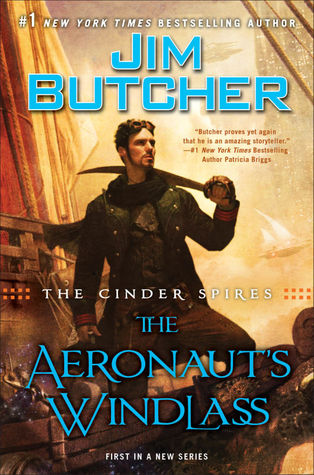 Format read:
Format read: ebook provided by the publisher via NetGalley
Formats available: hardcover, paperback, ebook, audiobook
Genre: steampunk, fantasy
Series: Cinder Spires #1
Length: 640 pages
Publisher: Roc
Date Released: September 29, 2015
Purchasing Info: Author’s Website,
Publisher’s Website,
Goodreads,
Amazon,
Barnes & Noble,
Kobo,
Book Depository
Since time immemorial, the Spires have sheltered humanity, towering for miles over the mist-shrouded surface of the world. Within their halls, aristocratic houses have ruled for generations, developing scientific marvels, fostering trade alliances, and building fleets of airships to keep the peace.
Captain Grimm commands the merchant ship, Predator. Fiercely loyal to Spire Albion, he has taken their side in the cold war with Spire Aurora, disrupting the enemy’s shipping lines by attacking their cargo vessels. But when the Predator is severely damaged in combat, leaving captain and crew grounded, Grimm is offered a proposition from the Spirearch of Albion—to join a team of agents on a vital mission in exchange for fully restoring Predator to its fighting glory.
And even as Grimm undertakes this dangerous task, he will learn that the conflict between the Spires is merely a premonition of things to come. Humanity’s ancient enemy, silent for more than ten thousand years, has begun to stir once more. And death will follow in its wake…
My Review:
I read this during WorldCon. I wanted something big that I could really sink my teeth into, and I’ll admit that I also picked a big book because I didn’t want to read a lot of short books and not have time to do the brain dump of the reviews.
Fortunately for me, The Aeronaut’s Windlass was an excellent choice. Unfortunately for me, it was so excellent that I found myself reading it during some of the panels at the con, or sitting in the hallway just reading.
On the other hand, I was able to give it an in-person enthusiastic “thumbs up” during the Ace/Roc showcase. I’d just finished it a half hour before the panel started.
About the book…this is definitely Jim Butcher writes steampunk. So it reminds me a little bit of his Dresden Files, and an awful lot of his Codex Alera. He’s taken the steampunk and put his own snarky twist on it.
One of the refreshing things is that this is not first person singular point-of-view. We are not stuck in anyone’s head. And, in a delightful twist, this story is every bit as much a heroine’s journey as it is a hero’s journey. Possibly even more so.
While the character profiled in the blurb is Captain Grimm, and he is an important perspective, he’s not the only perspective. After finishing this book, it feels as if the main protagonists are not just Grimm, but equally the Guard cadets Gwen Lancaster and Bridget Tagwynn, Guard Lieutenant Benedict Sorellin-Lancaster, and the young female Etherialist Apprentice (read mage) Folly. And especially Rowl of the Nine Claws, who is the heir to a great cat clan, and Bridget’s best friend and protector.
So we have a group of young people, including Rowl, who is very definitely people. It’s pretty clear that this is going to be their collective coming of age story. Grimm is the one relatively mature main character, and he appears to be somewhere in his 30s.
The setting is fascinating. We don’t know exactly how this situation came about, but everyone lives in extremely tall spires that poke up out of the mist that enshrouds whatever planet this might be. It could be Earth. It could also be a lost colony. While they use airships to travel between the spires, there doesn’t seem to be any indication that there is travel to other worlds.
The surface isn’t uninhabitable per se, but it is inhabited by lots and LOTS of monsters. Who all seem to be cousins of Shelob or the great Ungoliant. Giant, predatory spiders. (Ewwww)
The story in The Aeronaut’s Windlass is the beginning of a war. The author uses the perspectives of these characters to show them switching from whatever they were in peace to growing, changing and adapting to survive. They also band together, sometimes in spite of themselves.
What is not as clear are the reasons for the war. Spire Albion (our heroes) has generally operated as a benevolent monarchy. I think the structure is somewhat like the constitutional monarchy of England, but it is hard to tell. What is certain is that the Spirearch is more powerful and functional, and less ostentatious and pompous, than what we see of the British Royal Family in public. In extremis, the Spirearch can still get things done.
Spire Aurora is employing evil magicians. We know that. There is some explanation that Aurora is a bit like the old Roman Empire – its economy is based on continually gobbling up new territory, and goes into recession when they completely digest whoever they’ve most recently conquered. It also reminds me a bit of the Republic of Haven in the Honorverse.
Of course, the good guys, the Albions, base their economy on their people working for themselves and making things. And those people get to keep and profit from the fruits of their labors. Kind of an idealized middle class, but with nobles on top.
So the story is about the war. It starts with a brutal and cowardly attack on Albion by the Aurorans, and we’re off to the races. At the end of this first book, all of our heroes have survived, but definitely not unscathed. We still don’t know the true nature of the conflict, only that it will be to the death.
In the last two lines of the book, Folly tells her mentor, “I’m frightened”. His response, “ So am I child, so am I.” And he’s right to be. There’s going to be a whole lot of dark between here and the end.
Escape Rating A-: While I occasionally felt like the story dragged a tiny bit, and I could see a whole lot of tropes coming from miles away, I still loved this story, and enjoyed the hell out of exploring this world, even as it (the world, not the book) falls apart.
This is going to be one of those stories where things are always darkest just before they turn completely black. And there will be one tiny light on the horizon that grows until we reach safe harbor in the end. But probably not all of us.
There were a lot of hints dropped about the past. Folly’s mentor, Ferus, clearly has some issues with the evil witch Sycorax. Grimm used to be married to the pirate captain who is helping the Albions. There’s a dark period in Grimm’s past that has depths yet to be plumbed. And the entire Albion economy has just been shot to hell. Literally.
At the same time, the main characters are a mixed bag who are still finding their way. It feels like Bridget, the reluctant guard, may be one of the primary foci. She’s the one who is changing most. On the other hand, Gwen Lancaster, who starts out as a disobedient and disrespectful noble child, has the most to learn about life in the real world. Gwen does not start as a likeable character, but she seems to be improving.
Grimm has all the makings of a dark and brooding hero, but he has touches of dry humor that make me laugh.
Then there’s Rowl. He feels like the voice of the author’s usual snark, but I could be wrong. Certainly Rowl is awesomely self-serving and incredibly snarky. He also, as cats do, retcons every situation to his best advantage, but always in retrospect. When Bridget tells him that he is insufferable, his response is “I am cat.” He is. He is very anthropomorphized and yet he retains what we think of as feline attitudes and feline perspectives. From his point of view, he is the leader and is always in charge. In the end, he may be right.
All in all, I was totally immersed in the world of The Aeronaut’s Windlass, and I can’t wait to return. Soon, please?
***FTC Disclaimer: Most books reviewed on this site have been provided free of charge by the publisher, author or publicist. Some books we have purchased with our own money or borrowed from a public library and will be noted as such. Any links to places to purchase books are provided as a convenience, and do not serve as an endorsement by this blog. All reviews are the true and honest opinion of the blogger reviewing the book. The method of acquiring the book does not have a bearing on the content of the review.
 $10 Gift Card or $10 Book in the Stuck in a Good Book Giveaway Hop
$10 Gift Card or $10 Book in the Stuck in a Good Book Giveaway Hop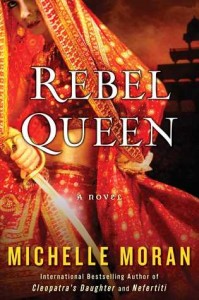 Blog Recap:
Blog Recap: Coming Next Week:
Coming Next Week:


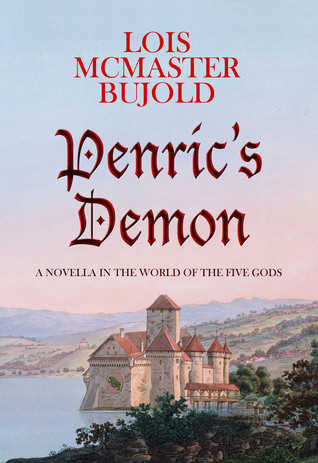
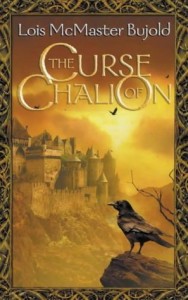 The World of the Five Gods series was originally called the Chalion series, after the first book in the series,
The World of the Five Gods series was originally called the Chalion series, after the first book in the series, 
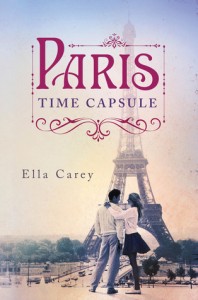
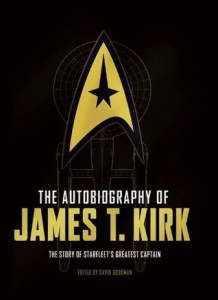















![clear off your shelf August[1]](https://www.readingreality.net/wp-content/uploads/2015/08/clear-off-your-shelf-August1-203x300.jpg) Current Giveaways:
Current Giveaways: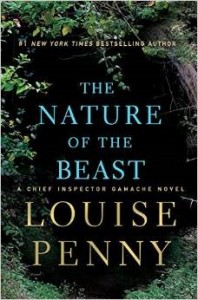 Blog Recap:
Blog Recap: Coming Next Week:
Coming Next Week: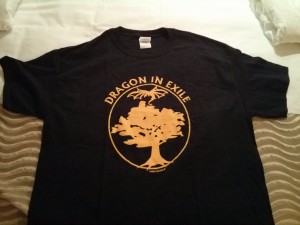 In other news. I attended both the Baen and the Tor showcases of upcoming books. While I found the prevailing attitude in the Baen presentation to be more than a bit disturbing, I did pick up a marvelous t-shirt. And unfortunately for the state of my TBR pile, I found plenty of books I will want to read in both presentations. Is that the good news or the bad news?
In other news. I attended both the Baen and the Tor showcases of upcoming books. While I found the prevailing attitude in the Baen presentation to be more than a bit disturbing, I did pick up a marvelous t-shirt. And unfortunately for the state of my TBR pile, I found plenty of books I will want to read in both presentations. Is that the good news or the bad news?




















